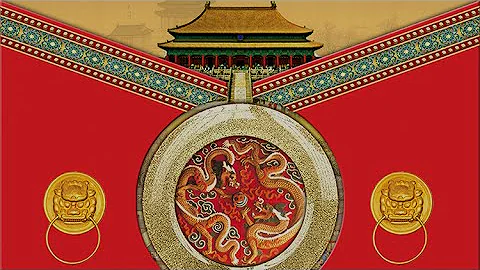
Foreword
At present, 21 provinces and cities including Zhejiang, Hubei, and Hunan are implementing the new college entrance examination. Candidates in the class of 2024 (currently in the first year of high school) are successively selecting subjects and courses. The Ministry of Education has released the latest "Guidelines on Subject Selection Requirements for Undergraduate Admissions to Majors in General Universities" 》, the selection requirements have changed dramatically.
The following is an interpretation of the trend from the latest subject selection data released by some provinces and high schools, coverage of optional majors in subject selection combinations, subject selection considerations, precautions, etc. to see if you have chosen the right subject?
1
The latest elective subject combination undergraduate major coverage rate for the class of 2024

Description: Based on the latest elective subject requirements announced by Gansu Province, it is applicable to 21 provinces and cities including Shandong, Beijing, and Jiangsu that have implemented the new college entrance examination.
Judging from the published documents
the proportion of "Physics + Chemistry" subject selection requirements has increased significantly
The combined major coverage rate of "Physics + Chemistry + Others" in the 2024 class is more than 95%, while other combinations have dropped to about 50%. . Some popular combinations in the "3+3" or "3+1+2" mode have significantly weaker advantages in the new file, such as "Physics + Biology + Geography".
Most majors in science, engineering, agriculture and medicine must choose "Physics + Chemistry"
Except for a few majors such as psychology, architecture, and geographical sciences where "Physics + Chemistry" is not required, for computer, mathematics, clinical medicine, Most undergraduate majors in the four major categories of science, industry and agriculture such as plant production must choose "Physics + Chemistry". Materialization is almost bound to each other. Some double first-class universities also require "physics + chemistry" for psychology and architecture. For example, Nanjing University must choose materialization for architecture, and Beijing Normal University must choose materialization for psychology.
Three majors must be selected: politics
Under the legal discipline category, public security category (including public security science, investigative science, etc.), political science category (including political science, diplomacy , etc.), and Marxist theory category (including political science, diplomacy , etc.). The three majors (including ideological and political education, etc.) must choose politics. If you want to apply for public security and judicial colleges in advance in the future, it is recommended to choose politics.
2
Subject selection data of some provinces and middle schools
Subject selection situation of a school in Zhejiang for the class of 2024:

Subject selection situation of the 2024 class of Hubei Wuhan No. 6 Middle School:

Hunan’s 2022 T8 joint examination subject selection data:

from the above 2024 and 2022 Students choose subjects to see
(1) The number of physics candidates has increased significantly
Among the candidates taking the T8 joint entrance examination in Hunan Province in 2022, more than 60,000 candidates chose physics, and nearly 30,000 candidates chose history. The number of physics candidates in high schools in Hubei and Zhejiang is also much higher than in history. The number of people choosing physics is likely to continue to increase in the future.
(2) "Physics + Chemistry" has become the mainstream for students to choose subjects
Among the latest subject requirements for undergraduate majors released by the Ministry of Education, "Physics + Chemistry" restricted subject requirements account for a high proportion. Regardless of the latest announced examination requirements in Anhui, Jiangsu, Zhejiang, Hunan and other provinces, or the subject selection situation of the above middle schools, the "physics + chemistry" combination has become the mainstream of subject selection. For example, the number of candidates for the physics and chemistry examination in the above middle schools accounts for more than 80% .
(3) The popularity of the combination of "material and chemical politics" is rising
From the data, the popularity of the combination of "material and chemical politics" is rising. The number of people taking the material and chemical politics exam in a middle school in Zhejiang accounted for 18.33%, ranking third. Some middle schools in Hubei also specialize in "material and chemical politics" "class. This is closely related to the rising popularity of postgraduate entrance examinations, public security examinations, and public security ideological and political majors in recent years.
If you want to know the subject requirements for undergraduate majors in this province in 2024, you can click here to enter
3
Considerations for selecting subjects
Through the above analysis, some students may think that there are the most majors in physics and chemistry, so they want to choose physics; some students plan to follow. Good friends choose. It is not recommended to just rely on the number of majors that can be applied for in a combination or to follow the trend in selecting subjects. Subject selection is a process of multi-angle analysis, and subjects should be selected rationally based on one's own development.
Students should make preliminary plans for their future.
Professional occupations have a corresponding relationship with university majors. That is, students who study related majors can engage in related jobs in the future and have better development. Students can comprehensively determine their future career from several aspects such as interests, personality, talents, values, etc.
Restricted subject requirements for college majors
Under the new college entrance examination, many college majors will impose requirements on high school subjects. If students do not take the selective examination of the corresponding subject, they will not be able to apply for the major. For example, computer majors generally require taking physics and chemistry, while most colleges and universities for language majors have no subject requirements.
Advantage subjects
If you want to enter a good university, you need to get high scores. Students can find advantageous subjects based on their learning interests, test scores, rankings, etc.
Characteristics of the school’s teachers and subject combinations
The teachers of each high school are different, and some high schools cannot focus on all subject combinations; some subject combinations have a large number of applicants, and it is not easy to get high scores. Students need to choose subject combinations that are the focus of the school or that can give full play to their own advantages on the premise that they are in line with their own professional direction.
4
4 details that need to be paid attention to when choosing subjects
Judge the performance strength of each subject, do not look at the scores but look at the rankings
In the new college entrance examination, the "3+3" mode means that in addition to language and mathematics, paper scores are included in the total score, and other subjects are in The scores are converted into assigned scores based on the ranking; the "3+1+2" model is that subjects other than Chinese and Mathematics, physics/history are scored by paper, and other subjects are assigned points.

(Shanghai level scoring situation)
To put it simply, the competitiveness of a student's single subject cannot be judged only from the paper score, but the ranking of each subject within the grade should be paid attention to in the usual examination. The further ahead, the stronger the competitiveness. Similarly, the college entrance examination is ranked among the candidates in the province. The higher the ranking, the greater the probability of being awarded a high score.
The subjects that are included in the total score are the key to improving the score.
The new college entrance examination. Candidates have grade-assigned subjects. As long as they take the college entrance examination, they can get at least the lowest grade. Taking Shanghai as an example ("3+3 model"), the total score of the elective subjects is 210, accounting for 32% of the total score of 660; however, the minimum grade corresponding to the elective subjects is 40 points, and you can get 120 by taking three subjects of the college entrance examination. point.
That is, the three elective subjects that really need to compete are only 90 points in total, accounting for only 13.6% of the total score; while the language and math subjects total 450 points, accounting for 68.2% of the total score.

(Shanghai New College Entrance Examination score ratio for each subject)
In this sense, assigning points further narrows the gap in test scores between students and increases the total score. In the "3+3" model, scores other than language and mathematics are more critical; In the "3+1+2" model, the scores in the four subjects of language, math, physics, and education are more critical.
Different achievement levels and different subject selection strategies
The combination of physics, chemistry, and biology has high professional coverage, but it is not suitable for everyone. Most of the top students choose this combination in the new college entrance examination, and the competition is fierce. Top academics with balanced development in various subjects can focus on subjects with a larger number of candidates.
For students with average grades, the key is to choose the subjects they are good at and work hard to improve their grades while considering their future majors.
Parents can guide their children to choose subjects, but they do not "do it all"
Parents care about their children's future, and it is natural to discuss and make decisions with their children on such an important matter as choosing subjects.
During this process, parents can understand the characteristics of the new college entrance examination grade-granting system, study their children's single subject rankings in each exam, let their children take the career aptitude test , and determine their preferred direction and elective subjects as early as possible; but note that if When there are differences of opinion, parents should give guidance and listen to their children's ideas, rather than being authoritarian and "arranging" subject selection.
Finally, there is no such thing as a "perfect" combination of subjects. The one that suits you is the best choice.
For the subject selection of the new college entrance examination, students must take into consideration future plans, advantageous subjects, restricted subject requirements of colleges and universities, teachers at the school, characteristics of the subject combination, etc., in order to choose a subject combination that suits them.
Statement: The pictures and texts are all from the Internet. If there is any infringement, please contact the administrator in time to delete it.





















